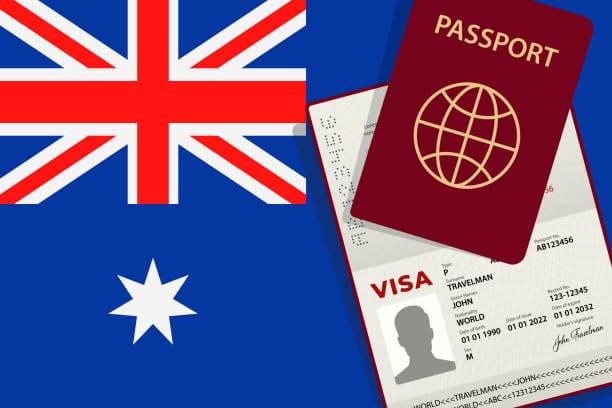What is a partner visa Australia? A partner visa in Australia allows the spouse or de facto partner of an Australian permanent resident, Australian citizen or an eligible New Zealand citizen to live in Australia.
Depending on their circumstances, parties may be able to apply to certain partner visas. What are the types of partner visa Australia? In this article, we will explore the types of visas, as well as some case studies in relation to these visas.
Partner Visa Australia: Types
Firstly, eligibility for certain types of partner visas depends on whether the applicant is onshore or offshore, i.e. whether they are already in Australia, or if they are outside Australia. Moreover, partner visas can either be temporary or permanent.
Subclass 820 and Subclass 801
The subclass 820 is a temporary partner visa. This is the first step towards obtaining the 801 permanent visa. These subclasses are meant for parties who are already in Australia. Two years after the applicant receives the subclass 820 temporary visa, they become eligible for the 801 permanent visa. Note that the applicant must still be in a genuine and continuing relationship with their Australian partner to be eligible for the permanent partner visa.
Subclass 309 and Subclass 100
For applicants applying from offshore, options for partner visa in Australia include subclass 309 and 100 visas. The applicant receives a provisional visa which is the subclass 309 visa, and then they can obtain the permanent visa (subclass 100).
Subclass 300 Prospective Marriage visa
The subclass 300 visa allows the fiance/fiancee of an Australia permanent resident or citizen to come to Australia. Those who come on the fiancé visa must marry their partner within nine months of arriving in Australia. This visa is only applicable for those who are outside Australia.
The subclass 300 visa is a temporary visa. The applicant can later apply for the permanent partner visa.
Partner Visa Australia: Case Example #1
The case of Kalia v Minister for Immigration [2018] FCCA 4012 relates to a spouse visa application made by Abhinav Kalia. In June 2015, a delegate refused his application, prompting Kalia to make an appeal to the Administrative Appeals Tribunal (AAT). The AAT affirmed the initial decision that the delegate made. Kalia then made an application for judicial review of the AAT’s decision.
In 2017, the Tribunal invited Kalia to attend a hearing before the Tribunal. Under Section 359A of the Migration Act, the Tribunal issued a letter asking for a comment on some concerning information related to a Facebook page. In addition to this, the Tribunal invited Kalia to attend a hearing.
However, Kalia neither responded to the Section 359A letter, nor did he attend the further hearing. He provided a note that stated he was unwell, however he did not request an adjournment. The case was ultimately dismissed, and the applicant was unsuccessful.
The main issue with the case was that the applicant was no longer in a relationship with his spouse Ms F. Ms F had since been with another partner, and also had a child with the other partner. At the first hearing, the applicant Kalia expressed that he hoped he and Ms F would get back together.
This case proves that for partner visas it is essential for the applicant to be in a genuine and continuing relationship with their Australian permanent resident or citizen partner. Furthermore, it is important for applicants to provide as much evidence to prove the genuineness of their relationship.

Partner Visa Australia: Case Example #2
In the case of Naikar v Minister for Immigration and Border Protection [2019] FCA 502, the appellant Ritesh Naikar arrived on a Subclass 300 visa in 2012. Naikar married his sponsor Ms Vijay Latchmi Kamchi Reddy. In 2013, Naikar made a combined application for the partner visa, and he was granted the temporary partner visa (subclass 820) a few months later.
In April 2016, following the breakdown of the relationship between the sponsor and the applicant, the sponsor withdrew her sponsorship. The Department invited Naikar to comment on the breakdown of the relationship. Shortly after, the delegate refused to grant the visa to Naikar.
This prompted Naikar to lodge a review application with the Administrative Appeals Tribunal (AAT). Under Section 359 of the Migration Act, the Tribunal requested information about the relationship between the appellant and the sponsor. They also requested the appellant to provide evidence if he otherwise meets the criteria for a Partner visa, if his relationship has broken down.
During the course of the proceedings, Naikar also made allegations of family violence against his sponsor. However, ultimately Naikar’s application was unsuccessful as he did not satisfy the requirements for a claim for non-judicially determined family violence. A non-judicially determined family violence claim is one that is not tested in a court of law.
Section 501: Character Grounds for Partner Visas
All Australian visa applications require the applicant to satisfy certain character requirements. For instance, applicants need to submit an Australian Federal Police (AFP) check to disclose any charges against them.
Similarly, if the applicant has lived overseas for a certain period of time, they must submit police clearance checks from all the countries that they have resided in. It is important to note that for Australian partner visa applications as well, the applicant needs to satisfy all character requirements. Note that the Minister can also cancel visa applications if they think that the applicant does not satisfy the character test.

Importance of Obtaining Legal Advice
Making Australian visa applications can be extremely challenging as there are numerous requirements that you must fulfil. Applicants may not be aware of all the requirements. Migration lawyers can provide assistance by outlining the eligibility criteria, helping applicants fulfil all requirements, as well as helping with gathering documents.
Are you in a de facto relationship? Or looking to come here for studies? If you are looking to make applications for student visas, partner visas, permanent residency visas, skilled worker visa, employment sponsored visas or for citizenship, do not hesitate to contact our team of lawyers. If you have any questions on bridging visa or substantive visa, check out our blog here.
You can reach out to our leading team of solicitors here.
